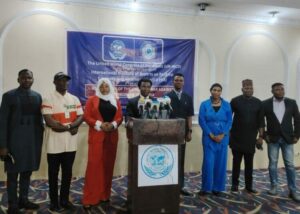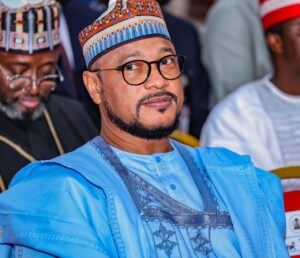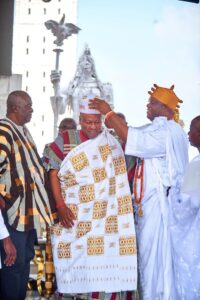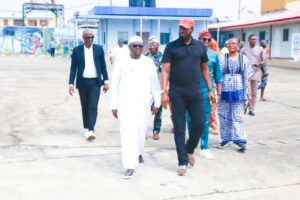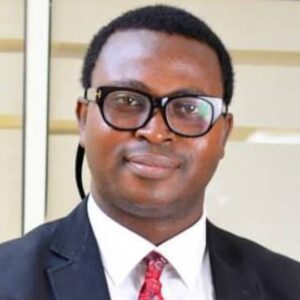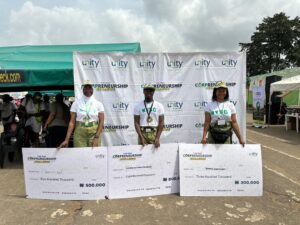Nigerian Governor Voices Out, Says President Never Gave Governors N570b, It’s World Bank COVID-19 Loan

In a nationwide broadcast on Sunday following the #EndBadGovernance protests that grounded activities in major cities of the country, Mr Tinubu explained that his administration had released more than N570 billion to states.
“Also, more than N570 billion has been released to the 36 states to expand livelihood support to their citizens, while 600,000 nano-businesses have benefitted from our nano-grants. An additional 400,000 more nano-businesses are expected to benefit,” the president claimed as Nigerians protests on the streets against hunger and corruption.
On Thursday, Mr Makinde explained that the N570 billion were part of the World Bank-assisted NG-CARES project, a programme for results intervention aimed at helping states to recover from the ravages of the COVID-19 pandemic.
“Let me state categorically that this is yet another case of misrepresentation of facts. The said funds were part of the World Bank-assisted NG-CARES project—a programme for results intervention. The World Bank facilitated an intervention to help States in Nigeria with COVID-19 Recovery. CARES means COVID-19 Action Recovery Economic Stimulus. It was called ‘Programme for Results’ because states had to use their money in advance to implement the programme.
“After the World Bank verified the amount spent by the state, it reimbursed the states through the platform provided at the federal level. The federal government did not give any State money; they were simply the conduit through which the reimbursements were made to states for money already spent,” the Oyo governor pointed out.
Acknowledging that the World Bank fund was a loan and not a grant to the states, Mr Makinde explained that each state of the federation is expected to repay the loan adding that the NG-CARES, which was christened Oyo-CARES predated the present federal administration.
“So, in direct response to the message, the federal fovernment did not give Oyo state any money. We were reimbursed funds (N5.98 billion in the first instance and N822 million in the second instance) we invested in the three result areas of NG-CARES, which includes inputs distribution to smallholder farmers within our State.
“In fact, when the World Bank saw our model for the distribution of inputs preceded by biometric capturing of beneficiary farmers, they adopted it.
Nigeria Still Repaying $10.6billion Loans, Says World Bank $10.6billion Loans
The World Bank Group Finances has disclosed that the Nigerian government is still repaying $10.6billion in loans taken by former presidents.
The loans totalling 69 were obtained during the administrations of former Presidents Olusegun Obasanjo, the late Umaru Musa Yar’Adua, and Goodluck Jonathan.
The Debt Management Office (DMO) had in June 2024 reported that as of March 31, 2024, Nigeria’s total domestic and external debt stood at N121.67 trillion ($91.46 billion).
The domestic debt amounted to N65.65 trillion ($46.29 billion), while external debt was N56.02 trillion ($42.12 billion).
It was learnt part of the foreign debt includes $4.95 billion in loans acquired by the current President Bola Tinubu-led administration during its first 12 months.
Additionally, the Central Bank of Nigeria revealed that a total of $15.55 billion was spent on debt servicing between 2019 and 2024.
The WBG Finances platform, a digital initiative of the World Bank Group Finance and Accounting, has further revealed that the Federal Government is still repaying at least 69 different loans obtained between 2000 and 2014.
This platform provides public access to financial data and portfolio information from all WBG entities.
Among the World Bank loans still being repaid are the Community Based Poverty Reduction Project ($60 million), Second Primary Education Project ($55 million), Economic Management Capacity Building Project ($20 million), and Small Town Water Supply and Sanitation Programme Pilot Project ($5 million), all obtained in 2000.
For 2001, loans include the Transmission Development Project ($100 million), Privatisation Support Project ($114 million), and HIV/AIDS Programme Development ($90.3 million).
In 2002, the Federal Government secured four loans totaling $438 million, including the Second Health System Development ($127 million), Community-Based Urban Development Project ($110 million), Lagos Urban Transport Project ($100 million), and Universal Basic Education Project ($101 million).
Between 2003 and 2005, the government obtained World Bank loans totaling $1.1 billion, which are still being repaid.
These loans include the Local Empowerment and Environmental Management Project ($70 million), Second FADAMA Development Project ($100 million), Micro, Small and Medium Enterprises Project ($32 million), Federal Government Economic Reform and Governance Project ($140 million), and Sustainable Management of Mineral Resources ($120 million).
Similarly, the government secured $4 billion in loans between 2006 and 2010, and $4.3 billion between 2011 and 2014, all of which are still being repaid as of June 30, 2024, when the platform was last updated.
Some of these loans include the Lagos Metropolitan Development and Governance Project ($200 million), Avian Influenza Control and Human Pandemic Preparedness and Response Project for Nigeria ($50 million), and Malaria Control Booster Project ($180 million), all secured in 2006.
According to the platform, these loans are categorized under the International Bank for Reconstruction and Development (IBRD) and the International Development Association (IDA), both components of the World Bank.
The IBRD lends to middle-income and creditworthy low-income countries, while the IDA provides interest-free loans and grants to the world’s poorest countries.


